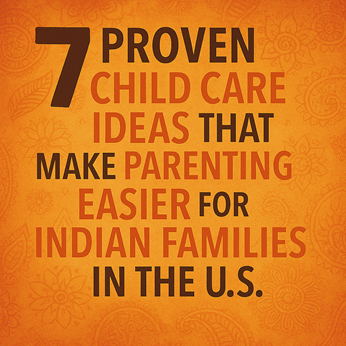Having That Difficult Conversation About Alzheimer’s

Alzheimer’s is a form of dementia and it affects memory, thinking as well as reasoning. In the Indian cultural ethos, there is an inhibition when it comes to discussing with a parent serious health issues. The usual stance is that it’s better for their peace of mind not to know. For a parent in the early stage of Alzheimer’s, they already recognize and are confused about what is happening to them. There might be increased fear and paranoia if they feel that other family members do not recognize what they are going through.
If you already have good communication lines with your parent then the conversation though always difficult, can be easier broached. Parents who tend to be more private might refuse to listen. However this is, it’s advisable to have another close family with you when you start this discussion. If the disease is already advanced they might not be in a state to rationally understand. In the early stages while they still have their “legal capacity” it’s important they assign someone with the power of attorney for living arrangements, finances and health care.
What Caregivers Need To Know
Often the early signs are ignored and the patient is brought in for a medical opinion when the symptoms are too obvious to be ignored any longer. Do remember with proper advice it helps to care for the parent as well as find ways to delay the progression.
The early symptoms are:
1. Memory loss: This is the most obvious. It is not the forgetting of a name and remembering it later. It is as serious as asking for the same information over and over and still having no memory of it. Forgetting information of the recent past etc.
2. Problem-solving: Numbers and keeping track of them become difficult. Doing simple calculations like adding up a bill or balancing a cheque book.
3. Forgetting locations: Going out someplace and then forgetting where their home location is or going out and not knowing where they were heading too.
4. Finding the correct words: Stumbling in their speech since they cannot remember the word that needs to be used.
Meet Your Doctor
Your doctor will do a mental status test which involves evaluating the thinking, reasoning, and problem-solving skills. Based on this the patient will be referred to a neurologist who is specialized in Alzheimer’s.
This is a progressive disease that can affect the caregiver and their family as much as it does the patient. The common feelings a caregiver’s family goes through is a loss at losing the person they know as Alzheimer’s wipes out all memories, feelings of guilt and anger as the care of the loved one places undue pressure on all in the family. Counseling and support groups are important for both the patient as well as the family.
Take the next step toward your goals
Share your requirement and find the best care providers in your area
-
Looking for a caretaker’s job? Build your profile and get in touch with families in your vicinity.
-
Discover nannies, babysitters, cooks, housekeepers, pet sitters, and elder care under one roof.
-
Get all the support you need to run a successful care center.
-
Search for appropriate centers near you depending on your needs.
Care Corner Insights: Blog Library

Why Toronto Parents Prefer Home-Based Childcare
A Warm, Trusted, Toronto-Style Approach to Raising Little Ones For parents in Toronto, finding the right childcare isn’t just a task—it’s an emotional decision. This city moves fast, hums with energy, and thrives on diversity, but its parents want s

Best Child Care Hacks for Busy Indian Moms and Dads in the U.S.
Balancing work, home, and parenting is challenging, especially for Indian parents living in the U.S. Between cultural expectations, school schedules, extracurricular activities, and household responsibilities, managing daily life can often feel overw

A Revolutionary Guide for Indian Families in California
Living in California offers incredible opportunities, but Indian families often face unique challenges—balancing cultural values, adapting to a fast-paced lifestyle, handling child care, navigating school systems, and building a strong community away

8 Powerful Secrets to Raising Happy Kids While Working Full-Time in San Diego, CA
Balancing a demanding full-time job with raising happy, emotionally secure kids isn’t easy—especially in a vibrant, fast-paced city like San Diego. But with the right strategies, you can create a joyful, connected home environment without burning out

What’s the Best Way to Find a Trustworthy Indian Nanny in Fremont, CA ?
Hiring a nanny for your family is a big decision, especially when you want someone who understands your cultural values and parenting style. If you’re looking for a trustworthy Indian nanny in Fremont, CA, here are some effective strategies to make t

7 Proven Child Care Ideas That Make Parenting Easier for Indian Families in the U.S.
Raising children in the U.S. comes with a unique blend of opportunities and challenges—especially for Indian families trying to balance cultural values, busy work schedules, and daily childcare responsibilities. These seven proven childcare ideas can

9 Must-Know Tips for Hiring a Nanny in San Jose
Finding the right nanny for your family in San Jose can feel like a huge task — especially when you want someone who is trustworthy, experienced, and a perfect match for your child’s needs. Whether you’re a first-time parent or looking to replace you

10 Revolutionary Child Care Tips Every Indian Family in California Should Know in 2025
1. Bring India Home — Every Day Your children might grow up in California, but they can still grow with India. Let Indian traditions live inside your home — evening prayers, storytelling in your native language, or cooking regional dishes together.

Deep Cleaning Your House: Room-by-Room Checklist for a Thorough Clean
A sparkling clean home isn’t just about looks—it’s about health, comfort, and peace of mind. Whether you’re prepping for a festival, hosting guests, or just tired of the clutter, a deep clean can transform your space. But where do you start? Here’s a

What are Senior Apartments? Experts Explain Independent Living for Older Adults
As we age, our needs and lifestyles evolve—but one thing remains constant: the desire for independence. Senior apartments are designed precisely with this in mind, offering older adults a living arrangement that balances freedom with comfort, safety,